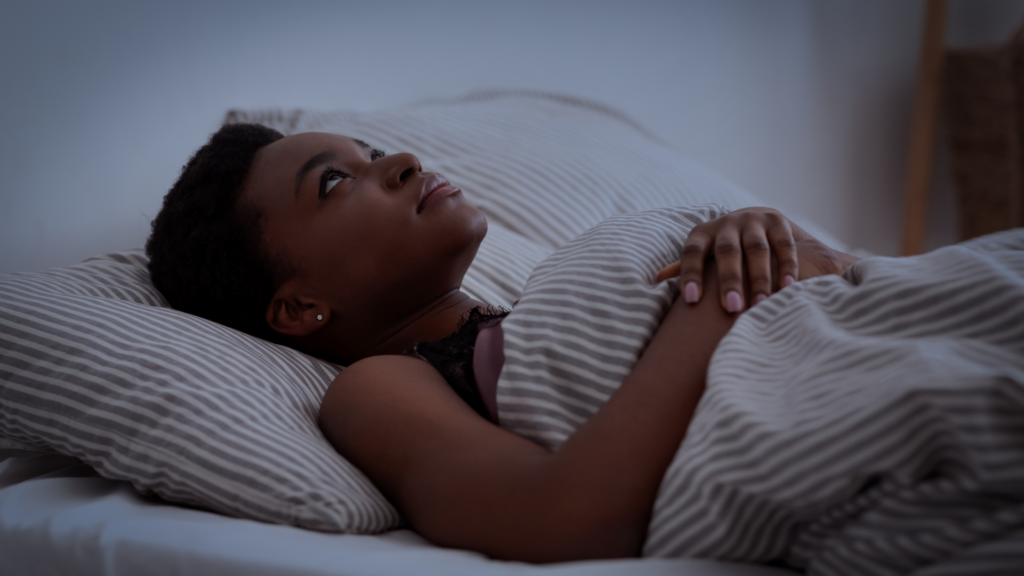The Importance of Sleep Stages
During sleep, our brains go through different stages that are vital for our mental health. These stages include rapid eye movement (REM) sleep, which is essential for processing emotions and memories. When we don’t get enough sleep, especially REM sleep, it can lead to problems like anxiety and depression. Research shows that a lack of sleep can make it harder for us to handle emotions and may even increase the risk of serious mental health issues
.A Two-Way Street
The relationship between sleep and mental health is complex. Poor sleep can lead to mental health problems, while existing mental health issues can disrupt sleep. This creates a cycle where each condition worsens the other. For instance, someone with anxiety may struggle to fall asleep due to racing thoughts, while lack of sleep can increase feelings of anxiety
How Sleep Affects Specific Mental Health Conditions
Depression
Depression affects millions worldwide and often comes with sleep issues like insomnia or sleeping too much. Studies show that about 75% of those with depression experience some form of sleep disturbance. Interestingly, improving sleep may help reduce symptoms of depression, suggesting a bidirectional relationship where both conditions influence each other.

Anxiety Disorders
Anxiety disorders are common in adults and teenagers, leading to excessive worry that can disrupt sleep. People with anxiety often find it hard to relax at night, which can lead to insomnia. Conversely, poor sleep can heighten anxiety levels, creating a cycle that is difficult to break.

Bipolar Disorder
Bipolar disorder involves extreme mood swings from mania to depression. Sleep patterns in individuals with bipolar disorder can vary widely; during manic episodes, they may need less sleep, while depressive episodes may lead to excessive sleeping. Disruptions in sleep can trigger or worsen these mood episodes.

Other Conditions
Conditions like schizophrenia and ADHD also show strong links to sleep problems. People with schizophrenia often experience insomnia or irregular sleep patterns due to their symptoms or medication side effects. Similarly, those with ADHD may struggle with falling asleep and staying asleep, which can worsen attention issues.
Improving Sleep and Mental Health
Given the strong connection between sleep and mental health, improving one can positively impact the other. Here are some strategies:
Cognitive Behavioral Therapy (CBT)
CBT is a type of therapy that helps people change negative thought patterns. It has been effective in treating both mental health issues like anxiety and depression as well as insomnia. Specific forms of CBT for insomnia (CBT-I) have shown promise in improving sleep quality and reducing mental health symptoms.

Healthy Sleep Habits
Practicing good sleep hygiene is essential for better sleep quality. Here are some tips:
- Set a Regular Sleep Schedule: Go to bed and wake up at the same time every day.
- Create a Relaxing Bedtime Routine: Engage in calming activities before bed.
- Limit Stimulants: Avoid caffeine, alcohol, and tobacco in the evening.
- Reduce Screen Time: Turn off electronic devices an hour before bed.
- Exercise Regularly: Get physical activity during the day for better nighttime rest.
- Optimize Your Sleep Environment: Make sure your bedroom is comfortable, dark, and quiet.
Finding what works best for you might take some time but can significantly enhance your ability to fall asleep and stay asleep throughout the night.

In summary, the relationship between sleep and mental health is intricate but vital for overall well-being. Understanding how they influence one another can help individuals take steps toward better mental health through improved sleep habits. Seeking professional help when needed is also crucial for managing both sleeping problems and mental health conditions effectively.


